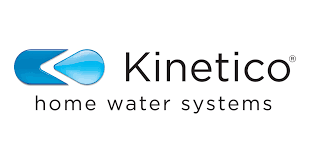Want to know if a company is paying it’s fair share of tax? Now it’s as easy as searching a database after the tax authority, Skat, opened up to the public last year’s corporate tax payments by Danish business.
The new tax database was created by a law that was passed by the government and Enhedslisten this summer in order to increase transparency of businesses operating in Denmark.
Only one year’s worth of data will be available and when this year’s corporation tax payments are tallied they will replace last year’s in the database.
The tax minister, Holger K Nielsen (Socialistisk Folkeparti), argued that the new database was created to persecute businesses that didn’t pay much, if any, corporate tax.
“It is neither the intention of the government nor myself to criticise particular businesses that don’t pay corporate taxes,” Nielsen wrote in editorial in Berlingske newspaper. “If I or the tax authorities think that particular companies are not paying the taxes they should, then we go straight to the businesses to investigate it.”
According to Berlingske, 68 percent of 162,000 non-privately held businesses did not pay corporate tax. Maersk paid the most – 3.2 billion kroner from 13.5 billion kroner taxable income, not including the 4.2 billion kroner the state earned on taxes from North Sea oil.
Companies that declare a deficit for the year do not pay corporate taxes. Two such companies were wind turbine manufacturer Vestas, which posted a 2.2 billion kroner deficit, and Nestlé Denmark, which had a declared a 53 million kroner deficit.
Nielsen acknowledged in his editorial that there were many legitimate reasons why companies don’t pay corporation tax in a given year, such as tax deductible investments and the offsetting of deficits that were carried from the previous year.
Business lobby group Dansk Industri is highly critical of the database, which they argue does not adequately demonstrate the full amount business contribute in taxes to the state.
“A recent analysis by DI found that Danish businesses contributed 450 billion kroner to the Danish state,” DI spokesperson Jacob Bræstrup said. “This new website, however, only shows how much corporate taxes were paid which only makes up only a tenth of the combined contribution, around 40 billion kroner.”
Bræstrup added that the tax lists could lead to fewer investments, reduced welfare, and lower tax income.
“Tax rules are deeply complicated and the tax database will only foster more myths when they are presented without explanation. It can be completely normal, and even beneficial to society, that some businesses do not pay taxes for several years.”
The database was also criticised by a number of right-wing politicians including Brian Mikkelsen (Konservative) who argued the database may make Denmark a less attractive country to do business in.
“I fear that the tax database will lead to businesses investing less in Denmark because they don’t want to be publicly humiliated,” Mikkelsen told Politiken newspaper. “There can be many good reasons for why a business does not pay corporate taxes, such as investing in jobs or a poor year.”
Despite the criticism, Nielsen argued that the increased transparency was not problematic.
“We, the government, think it is completely reasonable that the general public is able to look at [company finances] and we have a hard time seeing how this should be a problem for companies. Unless of course they have something to hide.”













